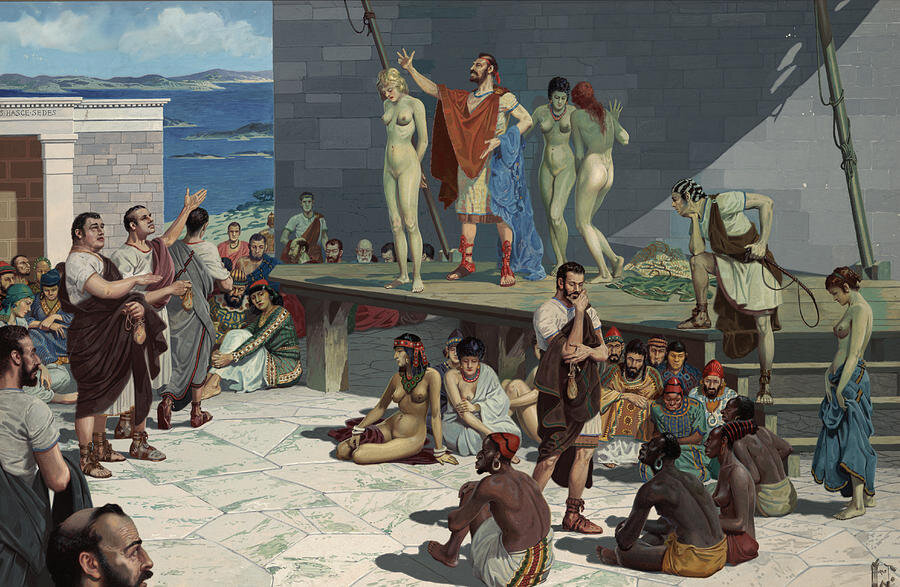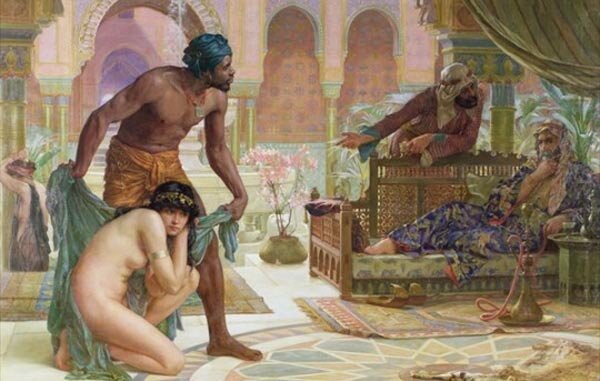Economic life in Ancient Greece was based on the labor of slaves, which allowed citizens to have free time and be involved with the community.
In ancient Athens in the 5th century, for example, the number of slaves was greater than the number of free citizens. The wealthy Athenians had about 50, while the average Athenian had about 10. The very rich, as in the case of the politician Nicias, had over a thousand. Piracy was a way of acquiring slaves, a typical example is the statement of Eumeus in the "Odyssey" where he mentions how the Phoenician pirates kidnapped him from his father's palace. The father had the right to sell his children to slavers, or if he had no money to raise them, he could leave them in a public place. If he did not die, his "savior" would turn him into a slave, as happened in the case of Oedipus. Otherwise, a poor person could sell himself as a slave to survive. At the end of a war, which Athens won, the losers became slaves of the victors. The largest slave markets took place in Delos, Chios, Samos and Cyprus. In Attica, the most important slave sales took place every month at Sounio and at the Agora of Athens.
Their prices depended on the manual skills and sex of each. A slave with specialization was considered the most expensive and was sold for as much as six mnas or six hundred drachmas. The family that bought them welcomed them with a religious ceremony and gave them a new name. The slaves were responsible for the housework and cultivation of the land, grinding the wheat, carrying water from the well, and tending the animals. Each slave had a job in the house, there was a caretaker, a cook, and a tutor who accompanied the children to school. Slaves who worked in the home were better off than those who worked in the industries of the time.
Most of them worked in the mines of Lavrio and the port of Piraeus, which were the main sources of wealth in Ancient Athens.
Working conditions in the mines were particularly harsh, prompting them to revolt and flee during the Peloponnesian War. Those slaves who were Greek could participate in the Eleusinian Mysteries but they had no political rights or the right to raise a family. If a slave was mistreated by his master, he could go to the temple of Thissio or Erinyes to seek asylum and be sold to another. In rare cases, there were skilled slaves who were freed by their masters and attained strong positions in the society of the time.











